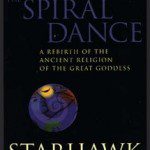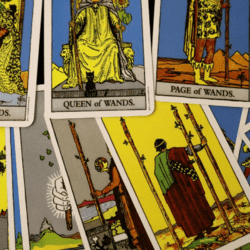And, What About Numbers?
When we asked our hypothetical typical citizens about the existence of various things, we went from bricks to numbers to people. The discussion of anatman and group minds shows us that the question of the existence of personal “selves” is blurrier than we thought, but surely we can put our faith in the existence of numbers. Mathematics is the purest of the sciences. Right?
Actually there is a long-standing debate here.
In general philosophy, there are two sides (more or less, not counting some fringe positions) on the question of the reality of abstracts. There are the platonists who take the position attributed to Plato, that abstract ideals exist, that in addition to (for example) coins existing, there also exists the universal of circularity, which exists independently.[Hawton 21-22] And there are nominalists like Thomas Hobbes[Duncan] and John Locke [Hawton, 67-68] who believe that what exists are particulars, and that general, universal terms are just convenient names.
The debate found its way into mathematics in the 20th century, and so we have platonists who argue that numbers and the other entities of mathematics objects really exist, though they do so outside of space and time; and nominalists who say that numbers are just conventions of thought or language, not real things.[Bueno] It’s important to understand that this is a contemporary controversy, not something belonging to medieval times or classical antiquity.
If we can’t agree on whether numbers exist, how can we say anything about the gods?
And, What About the Brick?

Well, numbers are for egghead mathematicians anyway. At least we can say with 100% solid certainty that the brick is real. Right?
Well…
Richard Feynman was one of the most brilliant minds of the 20th century, a Nobel prize winning physicist often said to be the greatest mind since Einstein. He was a man of broad curiosity, and as a graduate student tried to see how far he could get in various fields. He once dropped by a seminar on Alfred North Whitehead’s Process and Reality, where the students were discussing the idea of an “essential object”. The professor asked Feynman whether an electron was an essential object, but Feynman hadn’t read the book and no more idea what an essential object is than I do.
So Feynman asked the philosophy students, “Is a brick an essential object?” He explained:
What I had intended to do was to find out whether they thought theoretical constructs were essential objects. The electron is a theory that we use; it is so useful in understanding the way nature works that we can almost call it real. I wanted to make the idea of a theory clear by analogy. In the case of the brick, my next question was going to be, “What about the inside of the brick?” and I would then point out that no one has ever seen the inside of a brick. Every time you break the brick, you only see the surface. That the brick has an inside is a simple theory which helps us understand things better. The theory of electrons is analogous. So I began by asking, “Is a brick an essential object?”[Feynman, 70]
Here we have a Nobel Prize winning physicist saying that we can almost, but not quite, call electrons real. And saying the same thing about the inside of a brick. According to Feynman both are theoretical constructs which should be distinguished from reality.
(The philosophy students, as in all good stories about philosophers, proceeded to vigorously disagree and could reach no conclusion on whether a brick was an essential object.)
If we can’t agree that bricks are entirely real, what do you want from the gods?
Questions Need Context
My own answer to this puzzle is contextualism: we can only say that a thing “exists” in a certain context. There is apparently a philosophical name for this (what a disappointment to learn that I’m not the first to think of it!): “ontological anti-realism”.
Philosopher David Chalmers has an explanation of that, but first hang tight for some philosophical jargon that we’ll need to decode it.
- Ontology is the branch of philosophy that deals with what exists. An ontologist is one who practices ontology. A metaontologist, then, is one who gets meta- about ontology and tries to figure out what system (if any) of ontology we ought to use.
- We discussed the distinction between platonists and nominalists a few paragraphs back when we asked if numbers are real. Platonists say abstract ideals are really real, nominalists say they’re just convenient names.
- Mereology is the branch of ontology that deals with the relationships between parts and the wholes that the form. “Mereological sum” means (informally) a whole formed by combining two parts.[Varzi] Mereological universalists say that if you take any two things and put them together, you really have a new thing; mereological nihilists say that only the most basic building blocks really exist.[Sider]
With that, we can handle Chalmers’s explanation:
For example, the ontologist may ask: Do numbers exist? The Platonist says yes, and the nominalist says no. The metaontologist may ask: is there an objective fact of the matter about whether numbers exist? The ontological realist says yes, and the ontological anti-realist says no.
Likewise, the ontologist may ask: Given two distinct entities, when does a mereological sum of those entities exist? The universalist says always, while the nihilist says never. The metaontologist may ask: is there an objective fact of the matter about whether the mereological sum of two distinct entities exists? The ontological realist says yes, and the ontological anti-realist says no.
…
Ontological anti-realism is often traced to Carnap (1950), who held that there are many different ontological frameworks, holding that different sorts of entities exist, and that while some frameworks may be more useful than others for some purposes, there is no fact of the matter as to which framework is correct. [Chalmers]
So to deal properly with the gods, perhaps we need several different ontological frameworks. Or “reality tunnels,” as Robert Anton Wilson would have called them[Wilson, vii]. When we ask “Do the gods exist,” we have to ask, “In what framework? In what context?”
Within a ritual, the gods invoked exist — not as metaphors, but in the same way that Hamlet exists during a staging of the play that bears his name. If your Hamlet is only a metaphor, I don’t think your play will be very good.
But if I’m working out a physics or engineering or programming problem, or trying to understand a biological process, the gods do not exist.
The gods do not exist when I make my personal budget, and praying to them won’t help my checking account, as much as I could use a miracle. But when I try to figure out how to lead my life along lines that bring prosperity to all, maybe I can use a little divine guidance.
If I am doing healing work and the person I’m working on wants me to pray for them — their gods exist. For purposes of that work, I’m a believer, and I will call upon whatever deities work for them: “I am of all faiths in my fashion,” as Neil Gaiman’s Morpheus remarked.[Gaiman]
On the other hand, when I found myself doing CPR on a friend (he’s fine now), while I was deeply aware of the gravitas and even the “energetics” of the moment, of the intimacy of my lungs being the breath of life for another, I was not praying. Reductionist biomedicine was the call of the moment.
But when I went to Japan a few days later while he was still in a coma, I made it a point to visit a temple of the Medicine Buddha and pay my respects. Not because I thought Yakushi is a super-king who could reach out from some other dimension to heal my friend, but because it seemed the aesthetically best thing to do; and because doing so could change my own mind a bit, and telling others about it could change their minds just a bit, and so create a change in our actions: the subtle way that magic works to produce change in the world. And it’s natural (in the sense that our brains are wired for it) for us to put a human-like face on that subtle flow of attention, intention, and energy — a flow that exists as more than metaphor.
Some might call this approach cowardly or wishy-washy, but I like to think of it as abandoning a futile quest for an non-existent singular, ultimate, and final truth.
I believe that we can keep multiple views, and build a sort of “depth perception” that can give us a much richer life. I’m an atheist and I’m also a Pagan, and there’s no more conflict here than between my right eye and my left eye.
References
- “#1054: Eric S. Raymond.” Encyclopedia of American loons. 24 May 2014. http://americanloons.blogspot.com/2014/05/1054-eric-s-raymond.html
- Bueno, Otávio, “Nominalism in the Philosophy of Mathematics”, The Stanford Encyclopedia of Philosophy (Spring 2014 Edition), Edward N. Zalta (ed.), http://plato.stanford.edu/archives/spr2014/entries/nominalism-mathematics/ .
- Chalmers, David J., David Manley, and Ryan Wasserman. Metametaphysics: New Essays on the Foundations of Ontology. Oxford New York: Clarendon Press, 2009. https://books.google.com/books?id=6nqzIi16CY0C&pg=PA77
- Duncan, Stewart. “Thomas Hobbes”, The Stanford Encyclopedia of Philosophy (Summer 2013 Edition), Edward N. Zalta (ed.), http://plato.stanford.edu/archives/sum2013/entries/hobbes/#2.3.
- “Eric S. Raymond.” RationalWiki. 9 Feb 2015. http://rationalwiki.org/w/index.php?title=Eric_S._Raymond&oldid=1421750
- Feynman, Richard P. and Ralph Leighton. “Surely You’re Joking, Mr. Feynman!”: Adventures of a Curious Character New York: W. W. Norton & Company, 2010. https://books.google.com/books?id=7papZR4oVssC&pg=PA70
- Gaiman, Neil. “Ramadan”. The Sandman: Fables and Reflections. New York: DC Comics, 1993.
- Green, Mark. “Why Atheopaganism?” https://atheopaganism.wordpress.com/atheopaganism/ (as of 24 Feb 2015)
- Hanh, Nhat, and Peter Levitt. The Heart of Understanding. Berkeley, Calif: Parallax Press, 1988.
- Hawton, Hector. Philosophy For Pleasure.New York: Philosophical Library, 1949.
- Keown, Damien, and Charles S. Prebish. Encyclopedia of Buddhism. New York: Routledge, 2007.https://books.google.com/books?id=D1pcAgAAQBAJ&pg=PT734
- McRobbie, Linda Rodriguez. “The Strange and Mysterious History of the Ouija Board.” Smithsonian.com 27 Oct 2013. http://www.smithsonianmag.com/history/the-strange-and-mysterious-history-of-the-ouija-board-5860627/
- Raymond, Eric S. “Dancing With The Gods.” 10 Jul 1995. http://www.catb.org/~esr/writings/dancing.html
- Raymond, Eric S. “Frequently Asked Questions about Neopaganism.” Version 4.0, 1992. http://catb.org/~esr/faqs/paganism.txt, originally posted to USENET groups talk.religion, talk.religion.newage, alt.pagan, news.answers.
- Raymond, Eric S. “Why We Fight — An Anti-Idiotarian Manifesto (2.0).” 26 December 2003. http://www.catb.org/~esr/aim/
- Shah, Idries. The Exploits of the Incomparable Mulla Nasrudin. London: Octagon, 1983. https://books.google.com/books?id=czZufrUnl0wC&pg=PA2
- Shelley, Percy Bysshe. “Song of Proserpine While Gathering Flowers on the Plain of Enna.” In Hutchinson, Thomas ed., The Complete Poetical Works of Percy Bysshe Shelley Oxford edition, 1914. https://ebooks.adelaide.edu.au/s/shelley/percy_bysshe/s54cp/volume25.html#section213
- Sider, Theodore. “Against Parthood.” In Karen Bennett and Dean W. Zimmerman, eds., Oxford Studies in Metaphysics, volume 8, 237–93. Oxford: OUP, 2013. http://tedsider.org/papers/nihilism.pdf
- Varzi, Achille. “Mereology”, The Stanford Encyclopedia of Philosophy (Spring 2015 Edition), Edward N. Zalta (ed.), forthcoming at http://plato.stanford.edu/archives/spr2015/entries/mereology/ (current URL http://plato.stanford.edu/entries/mereology/ as of 24 Feb 2015)
- Wilson, Robert A. Cosmic trigger : Final Secret of the Illuminati. Tempe, Ariz: New Falcon, 1993.
Wow, you made it though all of that? Thanks! If you found it worthwhile please drop a note in the comment section below.
“The Zen Pagan” appears every other Friday. You can keep up by subscribing via RSS or e-mail.
If you do Facebook, you might choose to join a group on “Zen Paganism” I’ve set up there. And don’t forget to “like” Patheos Pagan over there, too.

















